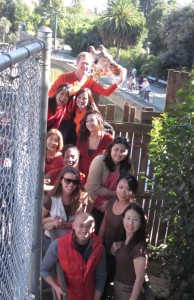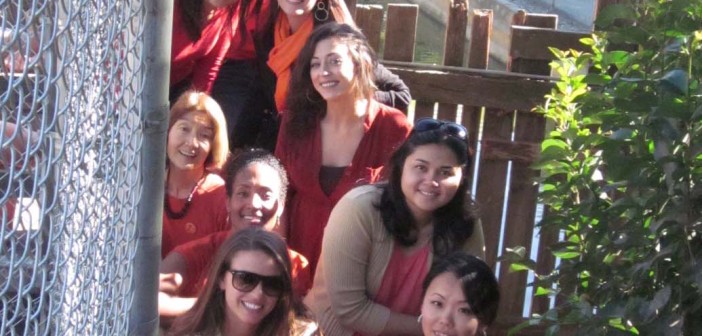Preservation Dedication
Behind a passion for flavored chai, David Rio Chai extends a hand (paw?) for endangered wildlife.
David Rio Chai San Francisco
www.davidrio.com
Specialty: Premium Chai Products
Mission: Animal Rights
In May 1996, David Rio created a line of specialty tea, coffee and accessories through an all-Japanese language catalog in Japan. They began by selling Elephant Vanilla Chai in Japan only, but domestic demand from both individuals and wholesalers led to offering David Rio chai in the U.S. as well. Wanting to create an additional chai with a strong presence of spices, David Rio developed a second flavor, Tiger Spice Chai®.
Their dedication to protecting endangered species led to their support for The International Fund for Animal Welfare’s (IFAW) tiger campaign. The group aims to protect tigers in the wild, working on the front lines to combat poaching, end all trade in tiger body parts and products, secure vital habitats, and raise awareness about tigers and the threats they face.
A percentage of the profits from each sale of any size David Rio Tiger Spice Chai® are also donated to their initiatives. Every year, a portion of each donation is allocated to help stop the illegal ivory trade.
We spoke with the founders of David Rio about their passion for animal preservation.
 TM: What is the basis of the name David Rio Chai?
TM: What is the basis of the name David Rio Chai?
David Rio: David Rio is a family owned business founded in 1996 by the husband-and-wife team, Scott (David) Lowe and Rio Miura. The company originally began as a line of specialty tea, coffee and accessories through an all-Japanese language catalog in Japan and through popular demand, transformed into a premier chai brand now available in cafes, restaurants, and specialty food stores across the U.S and around the world.
TM: How did you initially become connected to the cause of endangerment of tigers?
David Rio: Scott and Rio have always embodied a global vision for David Rio and their original mission was inspired by a desire to make a difference. They feel strongly about a cause-driven business model that contributes locally and globally. They also share a deep love of animals and choose to partner with organizations whose efforts are focused on securing and maintaining safe habitats for endangered animals around the world.
TM: How do donations to your cause directly help stop poaching and trade and work to secure tigers’ vital habitats?
David Rio: IFAW, the International Fund for Animal Welfare, works directly on the ground, protecting and saving individual animals, animal populations, and habitats all over the world. They have projects in more than 40 countries and provide hands-on assistance to animals in need—ranging from dogs and cats to wildlife and livestock, or rescuing animals in the wake of an unfortunate disaster. They also largely advocate saving populations from cruelty and depletion. They believe in demonstrating that healthy populations, naturally sustaining habitats, and the welfare of individual animals are intertwined.
In 2011, our donations helped IFAW alert Chinese authorities to the illegal trade of tiger bone wine at an auction house in Beijing, prompting the Chinese government to stop the sale. Additionally, on July 11, 2013, the U.S. Fish and Wildlife Service (USFWS) announced the results of “Operation Wild Web”—a coordinated undercover law enforcement operation, which sought to bring illegal wildlife traffickers to justice. IFAW worked alongside the Federal agents to find these criminals. IFAW volunteers searched marketplaces, forums, and classified ads on the Internet for suspicious wildlife sales and reported activities to taskforce team leaders around the country. After just 14 days of tracking, “Operation Wild Web” netted 154 “buy/busts”—30 involving Federal wildlife crimes and 124 for violations of State wildlife laws. Officials seized the pelts of endangered big cats such as Sumatran tiger, leopard, and jaguar, as well as elephant ivory.
On October 4, 2013, David Rio also participated in the Elephant March in San Francisco, which was part of a world-wide initiative to raise awareness about the illegal ivory trade.
TM: David Rio also helps local causes, such as Cat Tales Zoological Park in San Francisco. How has this helped you make a mark in your community?
David Rio: In 1999, we adopted a rescued Bengal Tiger named Thor, who lives at the Cat Tales Zoological Park in Mead, Washington to commemorate our signature product, Tiger Spice Chai®. Over the years, we have continued to support this beautiful 14 ½ year old furry friend with his development and progress. In addition, David Rio has supported local organizations in the San Francisco Bay Area, including the SPCA and the Peninsula Humane Society, where we volunteer or sponsor events, such as the Mutt Strutt, an annual fundraiser to support homeless animals at the facility. Our annual donations to the SPCA & the Peninsula Humane Society assist in maintaining the general operations of their facilities. We believe adopting Thor, as well as supporting local animal welfare organizations, have kept us engaged in the community.




